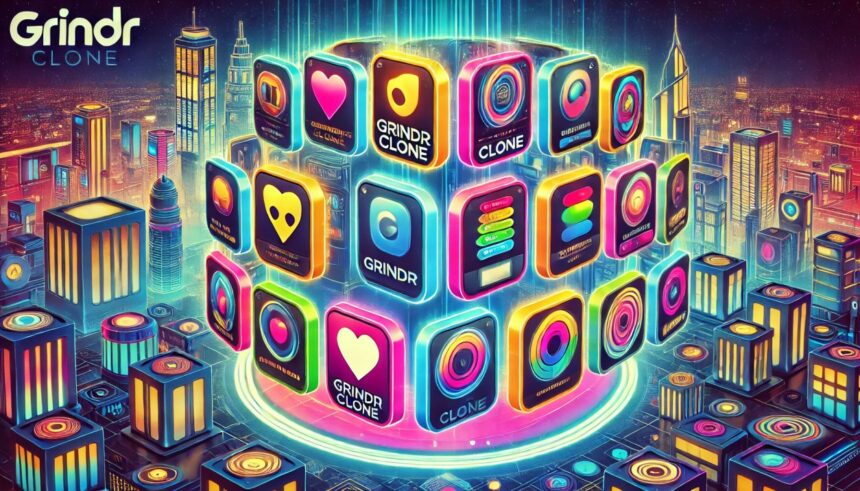The rise of artificial intelligence (AI) has introduced significant changes in various aspects of online interaction. Among the most notable transformations is how AI is enhancing personalization in online communities.
Personalization is the process of tailoring content, interactions, and experiences to meet the individual preferences and behaviors of users. In online communities, this means that AI is shaping the way users interact with each other, engage with content, and find meaningful connections.
This article explores how AI-driven personalization is changing the dynamics of online communities, offering new opportunities for engagement, content discovery, and user satisfaction.
What Is Personalization in Online Communities?
Personalization refers to tailoring content, interactions, and services to the individual preferences and behaviors of users. In online communities, this means providing relevant content and connections based on users’ interests and past activities.
For instance, Grindr clone platforms designed to replicate the popular app—use AI to analyze user data like location and preferences. By identifying patterns in behavior, these platforms can deliver personalized recommendations and help users find matches or content that aligns with their specific interests, creating a more engaging and relevant experience.
- Unlike traditional online communities where all members receive the same content or experience, personalized communities focus on creating a unique environment for each user.
- AI’s ability to process and learn from data enables this level of customization, making online communities more dynamic and user-centric.
The Role of AI in Personalizing Online Communities
Artificial intelligence is crucial for the personalization of online communities, as it can analyze vast amounts of data, predict user preferences, and create tailored experiences. Some of the key ways in which AI is used for personalization include content recommendations, user interactions, and predictive analytics.
1. Content Recommendations
One of the most visible ways AI is reshaping online communities is through personalized content recommendations. Social media platforms, video-sharing sites, and discussion boards use AI algorithms to suggest relevant content to users. This can include articles, videos, posts, or even entire sub-communities.
- Social Media Feeds: Platforms like Facebook and Instagram use AI to curate users’ news feeds by analyzing their past interactions—what they have liked, commented on, or shared. This allows the platform to deliver posts that are most likely to engage the user, creating a more personalized browsing experience.
- Video Platforms: YouTube, for example, uses a complex AI algorithm to recommend videos based on a user’s previous watch history, search queries, and even the channels they follow. The algorithm also takes into account the types of videos users engage with, like duration, likes, comments, and shares, to further refine the recommendations.
- Forums and Niche Communities: Websites like Reddit or Quora also employ AI to suggest new subreddits or topics based on the content a user has previously interacted with. These recommendations help users discover communities and discussions that they may not have found otherwise.
By analyzing a user’s past activities, AI can predict what they might be interested in next and surface content that aligns with their preferences. This not only improves user engagement but also enhances the sense of community within a platform.
2. Personalized User Interactions
AI is also transforming the way users interact within online communities. Traditional online forums relied on human moderators or manual processes for content management and user interaction. Now, AI tools such as chatbots, virtual assistants, and automated moderation systems play an essential role in managing engagement and improving interactions.
- Chatbots and Virtual Assistants: Many online communities use AI-powered chatbots to interact with users, answer questions, and provide recommendations. For example, in large communities, a chatbot can assist a user in finding groups, answering frequently asked questions, or even suggesting relevant posts or threads to follow.
- Automated Moderation: AI is increasingly being used to manage discussions and keep the community environment positive. For instance, AI systems can automatically flag and remove harmful content, such as hate speech or spam, without the need for human intervention. This not only keeps the conversation civil but also ensures that the content remains relevant and appropriate for the community.
- Tailored Engagement: AI can also be used to personalize the way communities engage with users. For example, some platforms use AI to send notifications based on a user’s previous activity. A user who regularly engages in a particular topic may receive alerts about new posts in that area, while a user who is active in multiple groups might be notified about cross-community discussions or events.
By automating these processes, AI enhances user experience by creating a seamless, responsive, and personalized interaction environment.
3. Predictive Analytics for Community Growth
AI not only personalized user experiences but can also predict future behaviors and trends. This ability allows community managers to take a proactive approach to community development and engagement.
- User Retention: AI can help identify signs that a user might be losing interest or becoming inactive. For example, if a user’s activity drops or they stop interacting with certain types of content, AI can predict that they may need re-engagement efforts. AI tools can then automatically recommend new groups, events, or content to re-engage these users, improving retention rates.
- Community Growth: AI also helps predict which types of content or interactions are most likely to attract new users to a community. By analyzing trends and behaviors, AI can suggest strategies to community managers that will drive engagement and expand the user base.
For instance, if a particular topic is gaining traction within a community, AI can identify this trend and suggest that community leaders create more content or discussions around that topic to attract users interested in it. This ability to predict and guide community growth is helping online communities evolve in ways that better serve both current members and potential newcomers.
4. Personalized Privacy and Security
AI’s role in personalization extends to user privacy and security as well. Personal data is a central component of AI-driven personalization, but the collection and use of this data raise important concerns around privacy. Many online communities are using AI to manage and protect user data more effectively, offering users greater control over what information is shared and how it is used.
- Personalized Privacy Settings: Some platforms allow users to customize their privacy settings based on AI-driven suggestions. For example, AI might suggest changing privacy settings if it detects that a user has been interacting with sensitive or personal content. AI can also offer tailored privacy advice based on a user’s behavior and engagement, helping them maintain control over their online presence.
- Enhanced Security: AI is used to detect suspicious or malicious activity within online communities. For instance, AI can analyze patterns in user behavior to identify potential threats, such as hacking attempts or fraudulent activities. By monitoring user activity, AI can alert community managers to security issues and take action to protect user data.
AI helps strike a balance between personalization and privacy, making online communities more secure and user-friendly without compromising user data.
Challenges and Concerns with AI Personalization
While AI-driven personalization has many benefits, it is not without its challenges and concerns. As online communities become more tailored to individual users, some potential issues may arise.
1. Data Privacy and Ethics
The use of AI requires collecting and analyzing vast amounts of user data. This raises questions about how data is collected, stored, and used. Users may not always be aware of the extent to which their data is being analyzed or how it influences their experience on a platform. There is also concern about whether AI systems are transparent and fair in their decision-making processes.
- Transparency: Users may not fully understand how their data is being used to personalize their experience. Communities must be transparent about the data they collect and how it is being processed.
- Bias and Fairness: AI algorithms are only as good as the data they are trained on. If the data used to train AI systems is biased, it can lead to unfair or inaccurate recommendations, which could alienate users or lead to the reinforcement of negative stereotypes.
2. Over-Personalization and Filter Bubbles
One potential drawback of excessive personalization is the creation of filter bubbles, where users are only exposed to content that aligns with their existing beliefs or interests. While personalization can help users find content that resonates with them, it can also limit exposure to diverse viewpoints and experiences.
- Echo Chambers: When users are consistently shown content similar to what they’ve already engaged with, they may become trapped in an echo chamber, where they are only exposed to information that confirms their existing beliefs.
- Lack of Discovery: Over-personalization can make it difficult for users to discover new content or ideas outside their narrow interests. As AI algorithms become more precise in predicting user behavior, there is a risk of reducing the variety of content that a user encounters.
3. Dependence on AI
Another concern is the increasing dependence on AI for community management and personalization. While AI can automate many tasks, it may lack the human touch necessary to handle complex or sensitive situations. For example, AI may not always understand the nuances of human emotions or conflict, making it difficult to handle delicate issues such as harassment or mental health concerns.
The Future of AI Personalization in Online Communities
Looking forward, AI personalization will continue to evolve. With advances in machine learning, natural language processing, and data analytics, AI will become even better at understanding and predicting user behavior. Some potential developments include:
- AI will improve at curating personalized content based not just on a user’s past behavior but also on deeper preferences, like emotional tone and mood.
- With AI integrated solutions platforms can analyze more detailed data to provide content that feels more relevant and emotionally connected.
- These advanced AI systems will adapt to users’ changing moods and interests, creating a more engaging and personalized experience in online communities.
Conclusion
AI is reshaping online communities in profound ways, offering personalized experiences that make these spaces more engaging, dynamic, and relevant. From customized content recommendations to smarter user interactions and predictive analytics, AI is enhancing the way we connect and communicate online.
However, as this technology evolves, it is essential to address issues such as data privacy, fairness, and the potential for over-personalization. As AI continues to advance, it will play a central role in the growth and evolution of online communities, offering users a more tailored and meaningful digital experience.








